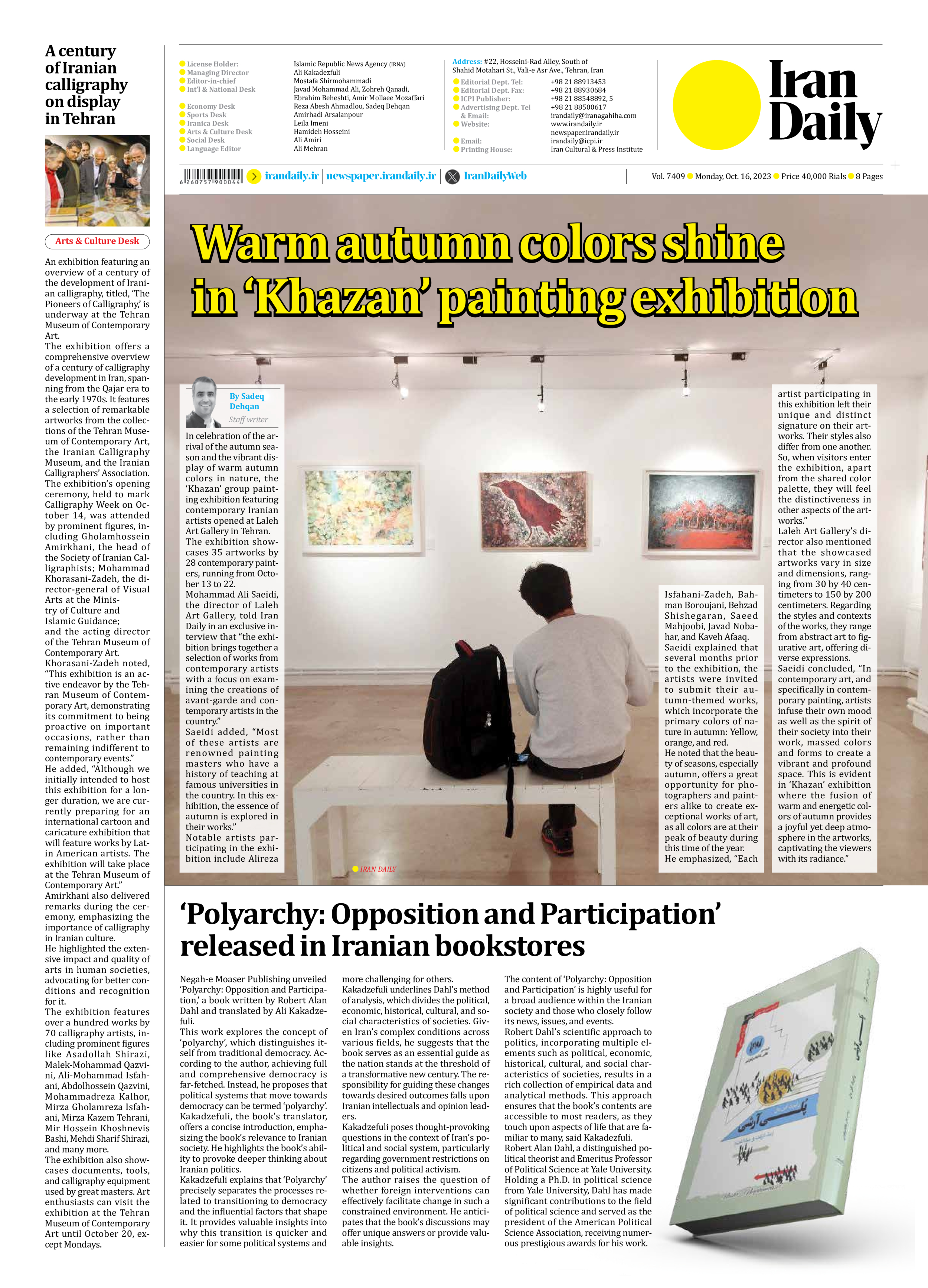
‘Polyarchy: Opposition and Participation’ released in Iranian bookstores
Negah-e Moaser Publishing unveiled ‘Polyarchy: Opposition and Participation,’ a book written by Robert Alan Dahl and translated by Ali Kakadzefuli.
This work explores the concept of ‘polyarchy’, which distinguishes itself from traditional democracy. According to the author, achieving full and comprehensive democracy is far-fetched. Instead, he proposes that political systems that move towards democracy can be termed ‘polyarchy’.
Kakadzefuli, the book’s translator, offers a concise introduction, emphasizing the book’s relevance to Iranian society. He highlights the book’s ability to provoke deeper thinking about Iranian politics.
Kakadzefuli explains that ‘Polyarchy’ precisely separates the processes related to transitioning to democracy and the influential factors that shape it. It provides valuable insights into why this transition is quicker and easier for some political systems and more challenging for others.
Kakadzefuli underlines Dahl’s method of analysis, which divides the political, economic, historical, cultural, and social characteristics of societies. Given Iran’s complex conditions across various fields, he suggests that the book serves as an essential guide as the nation stands at the threshold of a transformative new century. The responsibility for guiding these changes towards desired outcomes falls upon Iranian intellectuals and opinion leaders.
Kakadzefuli poses thought-provoking questions in the context of Iran’s political and social system, particularly regarding government restrictions on citizens and political activism.
The author raises the question of whether foreign interventions can effectively facilitate change in such a constrained environment. He anticipates that the book’s discussions may offer unique answers or provide valuable insights.
The content of ‘Polyarchy: Opposition and Participation’ is highly useful for a broad audience within the Iranian society and those who closely follow its news, issues, and events.
Robert Dahl’s scientific approach to politics, incorporating multiple elements such as political, economic, historical, cultural, and social characteristics of societies, results in a rich collection of empirical data and analytical methods. This approach ensures that the book’s contents are accessible to most readers, as they touch upon aspects of life that are familiar to many, said Kakadezfuli.
Robert Alan Dahl, a distinguished political theorist and Emeritus Professor of Political Science at Yale University. Holding a Ph.D. in political science from Yale University, Dahl has made significant contributions to the field of political science and served as the president of the American Political Science Association, receiving numerous prestigious awards for his work.







